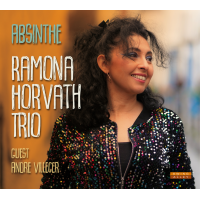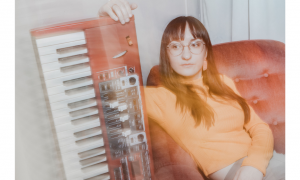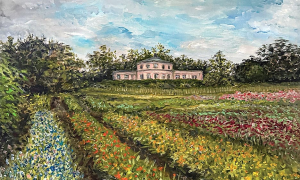
Acclaim has come all along her sophomore trail, landing her in rarified atmospheres for a jazz artist, including an appearance on the Letterman show that was an instant YouTube classic. These opportunities also included her recent stint on the televised BET awards show, which sparked some aw shucks post-show remarks from the bassist that gave clear indication that such experiences wouldn't deter her on the road to creativity. Last week Robin Givhan's excellent and expansive Washington Post Style section piece on Michelle Obama's impressive White House arts events (7/21 edition), once again highlighted Esperanza's (likewise pianist Eric Lewis') earlier White House performance, with a photo and this priceless quote from the First Lady: “She was such a series of contradictions; this little-bitty woman with an Afro and a bass with that angelic voice playing jazz. You know, I love that..." That mini-triumph led to a command performance by Spalding at President Obama's Nobel Peace Prize ceremony; as I said, rare atmospheres for a jazz musician. And Ms. Spalding is indeed a jazz musician, despite her crossover appeal; and that's what is continually promising about this young woman. She makes no bones about the fact that she's still very much on the learning arc, and still very much committed to playing the art of the improvisers. One need look no further than her ongoing stint as bassist in the restless saxophone master Joe Lovano's bristling Us Five ensemble for some evidence.
More recently Spalding, who at the time of her engagement several years ago as a professor at her alma mater Berklee College of Music was their youngest-ever instructor (succeeding Pat Metheny in that distinction), has been appointed artistic adviser to her hometown Portland Jazz Festival. Along comes her Heads Up follow-up release its very title, Chamber Music Society, serving notice that there'll be no gratuitous effort at capitalizing on her crossover success. Instead she delivers an understated record whose initial listens promise further revelations with successive spins. As opposed to fluffy pop, she's put together a program with arranger Gil Goldstein (noted grad of the Gil Evans school) with her bass and vocals shaded by chamber strings and spare rhythm section, addressing material from the books of Dimitri Tiomkin, Jobim, Leonardo Genovese, plus eight of her originals, one based on William Blake poetry. This coupled with interview pronouncements bathed in humility and strongly suggesting an admirable quest, are hopeful signs from this unusual young artist.



























